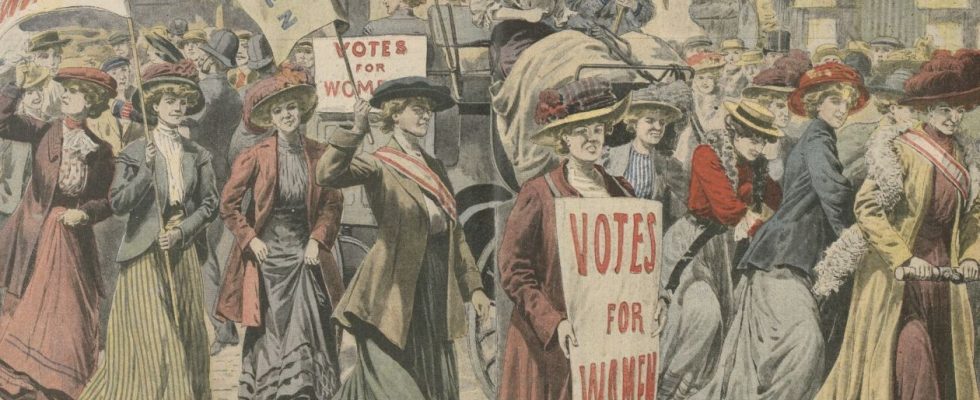A new day dawns over New Zealand on Tuesday September 19, 1893. Nothing will ever be the same again for society, and particularly New Zealand women. They were the first in the world to obtain the right to vote that day after a tireless fight by suffragists and feminists of the time. “Obtaining a right is always the result of a demand and mobilization”, underlines 20 minutes the historian specializing in the history of women and gender, Françoise Thébaud, co-author of feminisms, a global history (Textual).
On the occasion of the 80th anniversary of women obtaining the right to vote in France this Sunday, April 21, we look back at these pioneers, who started the movement in this small country in Oceania at the end of the 19th century.
A feminine note to society
They did not steal this right to vote. The demand appeared in the 1880s. Women then began to organize themselves, form suffragist associations and quickly demanded the right to vote. Their main argument: as much as men, “they contribute to the prosperity of the colony, are concerned with the preservation of its freedom and its free institutions, and suffer from all national errors and faults”, reports Françoise’s work Thébaud.
In addition to equality with the masculine gender, these feminists intend, through their vote, to bring “into the life of the city qualities that they consider feminine, in particular the fight against social scourges: diseases, tuberculosis, “alcoholism, child delinquency…”, specifies the historian.
Conquering the law
In this territory divided into two islands and with only one million inhabitants, the suffragist feminists had to tenaciously canvass, door after door, to seek out the slightest signature to write on the petitions written in favor of this new right to be conquered. “You have to imagine all the energy deployed: going from house to house, encountering hostility from men but also sometimes from women,” underlines the historian.
And it was only on the third attempt at mobilization that they won their case with 18% of signatures from the adult female population, “which is a lot”, comments Françoise Thébaud. A weight which ultimately makes the deputies bend. The law promulgated on September 19, 1893 gave the right to vote to all women, whether indigenous or from the colonies (New Zealand was at the time a colony of the British Crown), and for all elections. It should be noted that at the time, the New Zealand parliament was predominantly progressive, and already in favor of this citizen openness.
At the citizens’ polls
Two months later, women were called to the polls for their first legislative elections on November 28 and then December 20. “The newspapers report on the fact that women are massively going to vote,” according to Françoise Thébaud. This unprecedented breakthrough resonates throughout the world.
The press echoed it as far as France. This vote is considered, for example, “as a practical test of the movement (…) in favor of the emancipation of women” in the columns of the newspaper The Public. The publication also notes that through the results of these legislative elections, it appears that “women took into account the personality rather than the public opinion of the candidates”.
Forever the pioneers
“Feminists celebrated the victory, and around the world, suffragists celebrated the victory of New Zealanders,” explains Françoise Thébaud. “These militant actions are known abroad because feminists from one country to another write to each other, because newspapers circulate, because texts circulate. This action is known to other activists around the world,” she adds. Soon, others will follow New Zealand’s example.
4,000 km away, Australia followed in the footsteps of its neighbor in Oceania in 1902. Australian women obtained, at the same time as the right to vote and to stand for election, another revolution. However, only white women are affected. As far as Europe is concerned, it was in Finland that the first women could vote and be elected, in 1906. Two world wars later and more than fifty years after New Zealanders, French women could finally go to the ballot boxes in the same way as men in 1944. The first stone in a long fight towards equality which continues today.

